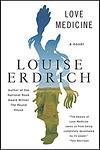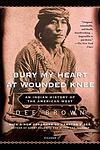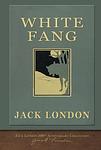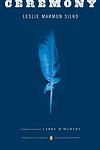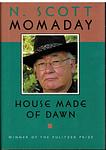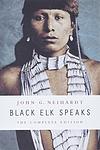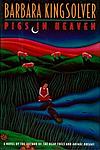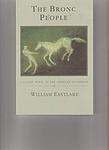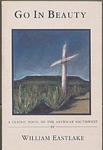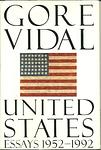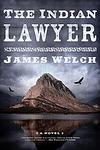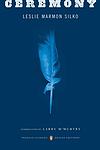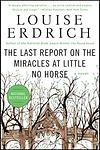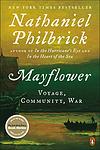The Greatest "Indians of North America" Books of All Time
Click to learn how this list is calculated.
This list represents a comprehensive and trusted collection of the greatest books. Developed through a specialized algorithm, it brings together 284 'best of' book lists to form a definitive guide to the world's most acclaimed books. For those interested in how these books are chosen, additional details can be found on the rankings page.
Genres
The category of "Indians of North America" refers to books that explore the history, culture, and experiences of the indigenous peoples who have inhabited North America for thousands of years. These books may cover topics such as the impact of colonization, the struggles for sovereignty and self-determination, traditional practices and beliefs, and contemporary issues facing Native communities. This category encompasses a diverse range of nations and tribes, each with their own unique histories and perspectives. Overall, books in this category seek to deepen our understanding of the rich and complex tapestry of Native American life and culture.
Countries
Date Range
Reading Statistics
Click the button below to see how many of these books you've read!
Download
If you're interested in downloading this list as a CSV file for use in a spreadsheet application, you can easily do so by clicking the button below. Please note that to ensure a manageable file size and faster download, the CSV will include details for only the first 500 books.
Download-
1. Blood Meridian by Cormac McCarthy
Set in the mid-19th century, this novel follows a violent teenager known as "the Kid" as he joins a group of Indian-hunters led by the enigmatic and brutal Judge Holden. The narrative is a gruesome depiction of the lawless American West, filled with philosophical musings, vivid descriptions of the harsh landscape, and brutal, relentless violence. The story explores themes of human nature, morality, and the inherent chaos and brutality of life.
-
2. The Last of the Mohicans by James Fenimore Cooper
Set during the French and Indian War, this historical novel follows the journey of Hawkeye, a skilled frontiersman, and his two Mohican companions as they guide two daughters of a British colonel through the dangerous wilderness of the American frontier. The group faces numerous perils and conflicts, not only from the war-torn landscape and hostile tribes, but also from a treacherous Huron scout. The novel explores themes of racial conflict, survival, and the fading of indigenous cultures.
-
3. Love Medicine by Louise Erdrich
"Love Medicine" is a novel that explores the lives of several generations of a Native American family living on a reservation in North Dakota. The narrative is presented through a series of interconnected stories, each told from the perspective of different family members, and spans over 60 years, from 1934 to 1999. The book explores themes of love, family, identity, and the struggle between tradition and modernity. It provides a deep and poignant look into the complexities of Native American life and culture, and the challenges faced by the community.
-
4. Bury My Heart at Wounded Knee by Dee Alexander Brown
This book is a compelling historical narrative that chronicles the systematic decimation of Native American tribes in the United States during the late 19th century. The author uses council records, autobiographies, and firsthand descriptions to provide a detailed account of the battles, massacres, and broken treaties that led to the destruction of the Native American way of life. The book centers on significant events such as the Battle of Little Bighorn and the Wounded Knee Massacre, offering a voice to the often overlooked Native American perspective.
-
5. White Fang by Jack London
The novel tells the story of a wolf-dog hybrid named White Fang, who endures harsh conditions in the Yukon during the 19th-century Klondike Gold Rush. The narrative follows White Fang's journey from a life in the wild to domestication. He experiences cruelty and brutality from both nature and humans, but eventually finds kindness and compassion with a man who rescues him from a dog-fighting ring. The book explores themes of survival, nature versus nurture, and redemption.
-
6. Ceremony by Leslie Marmon Silko
"Ceremony" is a novel that explores the life of Tayo, a World War II veteran of mixed Laguna Pueblo and white heritage. After returning from the war, Tayo struggles with post-traumatic stress disorder and alcoholism. The novel charts his journey towards healing, which involves embracing his Native American heritage and the traditional ceremonies of his people. Along the way, he must confront racism, poverty, and the destructive forces of Western culture, ultimately finding solace and redemption in the ancient rituals and wisdom of his ancestors.
-
7. The Bean Trees by Barbara Kingsolver
The novel follows the journey of a young woman from rural Kentucky who, on her drive west to avoid an unwanted pregnancy, is unexpectedly entrusted with a three-year-old Native American girl. The protagonist settles in Tucson, Arizona, where she builds a non-traditional family with a group of resilient and unconventional women. The narrative explores themes of love, friendship, and the power of the human spirit while tackling issues of social injustice and immigration.
-
8. House Made of Dawn by N. Scott Momaday
The novel delves into the life of a young Native American man named Abel who returns home to his New Mexico Pueblo reservation after serving in World War II. Struggling with the trauma of war and the cultural dislocation caused by years away from his traditional tribal life, Abel tries to find his identity and place in a world that is torn between ancient tribal traditions and the modern white society. His journey of self-discovery and redemption is poignantly narrated, highlighting the struggles faced by Native Americans in the contemporary world.
-
9. Mean Spirit by Linda Hogan
"Mean Spirit" by Linda Hogan is a gripping novel set in 1920s Oklahoma during the oil boom, where greed and violence run rampant. The story follows the lives of several interconnected characters, including members of the Osage Nation who are targeted for their newfound wealth and forced to confront a sinister conspiracy. As the tension escalates, the characters must navigate a treacherous landscape of corruption, racism, and murder, ultimately revealing the devastating consequences of unchecked power and the resilience of the human spirit.
-
10. Black Elk Speaks by John G. Neihardt
"Black Elk Speaks" is a profound narrative that recounts the life of a Native American medicine man from the Oglala Lakota tribe. It provides a unique perspective on the Lakota people's history and culture, their spiritual beliefs, and the impact of westward expansion on their way of life. The book also delves into the protagonist's personal spiritual visions, which he believes have significant prophetic and healing powers. The narrative is a poignant exploration of the clash between cultures and the devastating effects of colonization on indigenous peoples.
-
11. The Absolutely True Diary of a Part-Time Indian by Sherman Alexie
The book is a semi-autobiographical novel that follows a Native American teenager who leaves his school on the Spokane Indian Reservation to attend an all-white high school in a neighboring town. The protagonist grapples with his own identity, the perceptions and prejudices of his new classmates, and the harsh realities of life on the reservation. Throughout the story, he uses humor and his passion for drawing cartoons to navigate the challenges he encounters.
-
12. The Round House by Louise Erdrich
A teenage boy navigates the complexities of life after his mother is brutally attacked on their reservation in North Dakota. As the legal system fails to bring justice due to jurisdictional issues, the boy takes matters into his own hands. The novel explores themes of tribal law, justice, and the transition into adulthood, all set against the backdrop of Native American culture and history.
-
13. Brown Girl, Brownstones by Paule Marshall
This novel explores the life of a young Barbadian-American girl growing up in Brooklyn during the Great Depression and World War II. The protagonist struggles with her identity as she navigates the cultural divide between her parents' traditional Barbadian values and her own American aspirations. The story delves into the themes of immigration, cultural identity, race, and gender, as the protagonist comes of age and seeks to establish her independence.
-
14. Pigs in Heaven by Barbara Kingsolver
This novel follows the story of a young Cherokee girl and her adoptive mother. When the mother's right to custody is challenged by the Cherokee Nation, she takes her daughter and flees, sparking a nationwide manhunt. The narrative explores themes of cultural identity, belonging, and the meaning of family, while also delving into the legal and ethical complexities of Native American adoption laws.
-
15. There There by Tommy Orange
"There There" by Tommy Orange is a powerful and poignant novel that follows the lives of twelve Native American characters living in Oakland, California. As their stories intertwine and converge, the novel explores themes of identity, community, and the effects of historical trauma on Native American people. Through vivid and lyrical prose, Orange gives voice to a group of individuals who have long been marginalized and overlooked in American society, creating a compelling and unforgettable portrait of contemporary Native American life.
-
16. Centennial by James A. Michener
"Centennial" is a sweeping historical novel that traces the history of the plains of northeast Colorado from prehistoric times to the 1970s. The narrative intertwines the stories of the land's various inhabitants over the centuries, including Native Americans, French fur trappers, English nobles, American pioneers, and others. The novel explores themes of love, war, and the challenge of the frontier, all set against the backdrop of the American West's breathtaking landscapes.
-
17. The Education of Little Tree by Forrest Carter
The book is a heartwarming story of a young orphan boy of mixed ancestry who is raised by his Cherokee grandparents in the Appalachian Mountains during the Great Depression. His grandparents teach him the Cherokee way of life, including their spiritual beliefs, love for nature, respect for all living things, and the importance of tolerance and understanding. Despite the hardship and prejudice they face, they impart wisdom, love, and a unique perspective on life to the young boy.
-
18. The Bronc People by William Eastlake
Set on a Navajo reservation during World War II, "The Bronc People" explores the complex relationships and cultural tensions between the Native American inhabitants and the white government officials. The story is centered on a young Navajo man who is torn between his traditional lifestyle and the modern world. The book provides a deep insight into the Navajo culture, their spiritual beliefs, and their struggle to preserve their identity amid external influences.
-
19. Go in Beauty by William Eastlake
"Go in Beauty" is a novel that explores the complexities of human relationships, love, and loss against the backdrop of the Navajo Indian reservation in New Mexico. The protagonist, a New York journalist, moves to the reservation after his wife's death and becomes entangled in a love triangle with two local women. The book delves into themes of cultural clash, isolation, and the search for meaning and redemption, all set against the stark and beautiful landscape of the American Southwest.
-
20. United States: Essays 1952-1992 by Gore Vidal
This book is a collection of essays written over a 40-year period, providing an insightful commentary on the political, historical, and cultural landscape of the United States. The author's sharp wit and incisive analysis are evident as he discusses a wide range of topics, from literature and the arts to politics and public life. His observations on American society, its leaders, and its institutions offer a critical perspective on the evolution of the nation during the second half of the 20th century.
-
21. The Indian Lawyer by James Welch
The book tells the story of a Native American man who, after a successful career as a lawyer, returns to his reservation in Montana to defend a childhood friend accused of murder. Despite his accomplishments, he grapples with feelings of alienation from both the white world he's found success in and his own tribal community. As he delves into the case, he uncovers a conspiracy involving a powerful mining company, forcing him to confront his own identity and purpose.
-
22. The Almanac of the Dead by Leslie Marmon Silko
"The Almanac of the Dead" is a complex narrative that explores the histories and struggles of indigenous peoples in the Americas, particularly in the Southwestern United States and Central America. The story is centered around a 500-year-old manuscript known as "the almanac," which prophesizes a massive, revolutionary upheaval led by the indigenous people against the oppressive forces of capitalism and colonialism. The novel delves into themes of resistance, survival, and the power of storytelling, weaving together a multitude of interconnected narratives and characters.
-
23. The Last Report on the Miracles at Little No Horse: A Novel by Louise Erdrich
The novel presents the story of Father Damien Modeste, a beloved figure who has served the Ojibwe Native American community at Little No Horse for over a century. As death approaches, Father Damien pens a letter to the Pope revealing his true identity; he is a woman named Agnes DeWitt who adopted the disguise of a priest after the real Father Damien died. The narrative explores themes of faith, identity, and the often complex relationship between Native American communities and the Catholic Church.
-
24. Mayflower: A Story Of Courage, Community, And War by Nathaniel Philbrick
"Mayflower" by Nathaniel Philbrick is a historical account of the Pilgrims' journey to America on the Mayflower and their struggle to establish a colony in the New World. The book delves into the challenges they faced, including harsh weather, disease, and conflicts with the Native Americans. It also explores the relationships between the Pilgrims and the Wampanoag tribe, including the alliance formed between them and the events that led up to King Philip's War. Through detailed research and vivid storytelling, Philbrick provides a compelling and informative narrative of this pivotal period in American history.
-
25. The Oregon Trail by Francis Parkman
"The Oregon Trail" is a historical account of a two-and-a-half month summer tour in 1846 of the U.S. states of Nebraska, Kansas, Colorado, and Wyoming. The book captures the experiences of the author and his companion as they journey from St. Louis to the Rocky Mountains and back. The narrative is rich with descriptions of the landscapes, wildlife, and people they encounter, including several Native American tribes. The book provides a vivid depiction of the West before industrialization and settlement.
Reading Statistics
Click the button below to see how many of these books you've read!
Download
If you're interested in downloading this list as a CSV file for use in a spreadsheet application, you can easily do so by clicking the button below. Please note that to ensure a manageable file size and faster download, the CSV will include details for only the first 500 books.
Download

